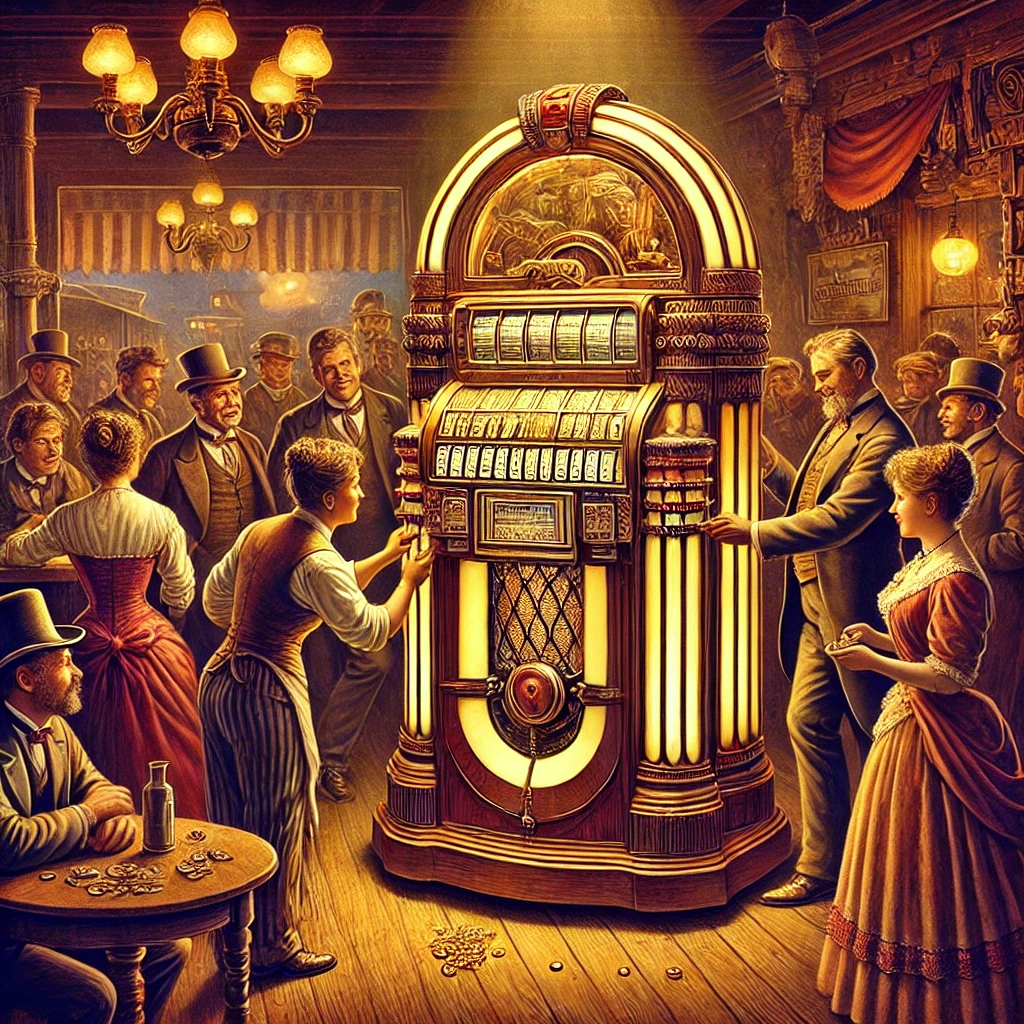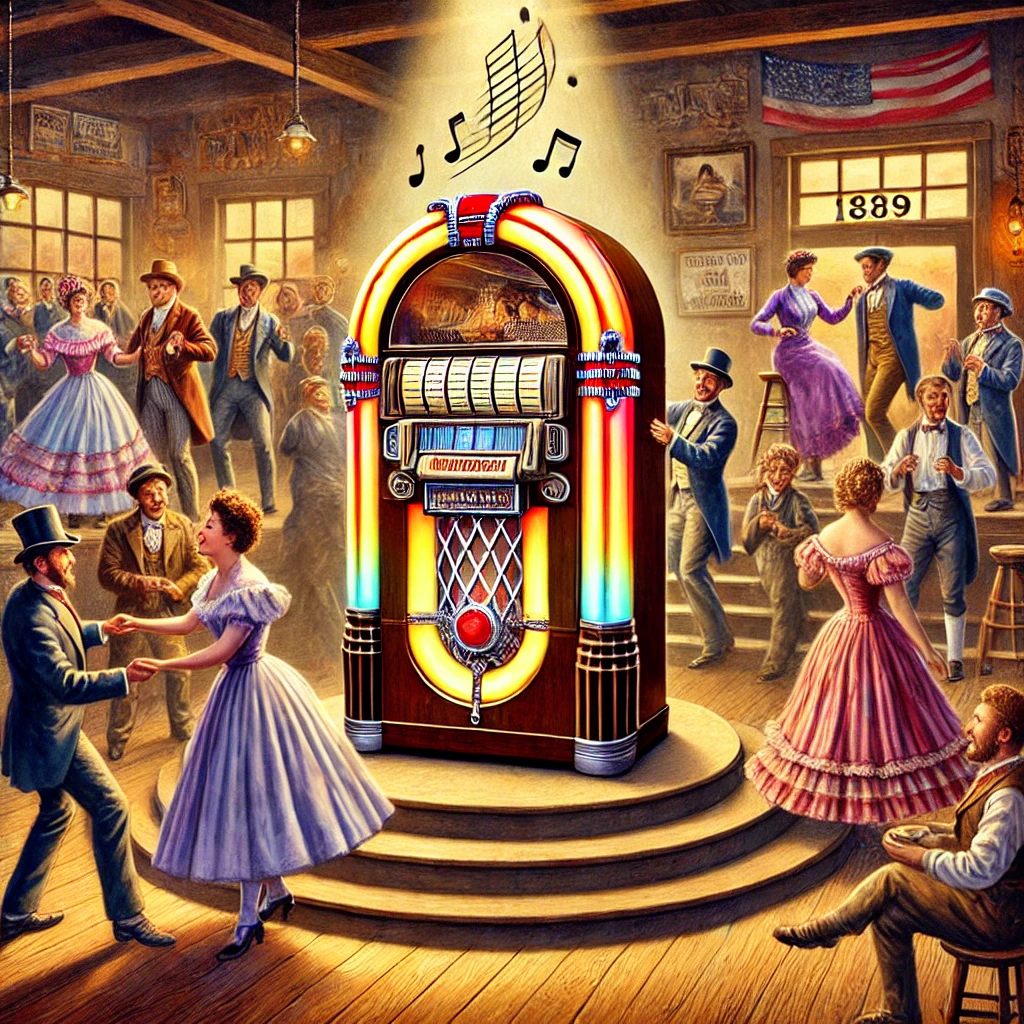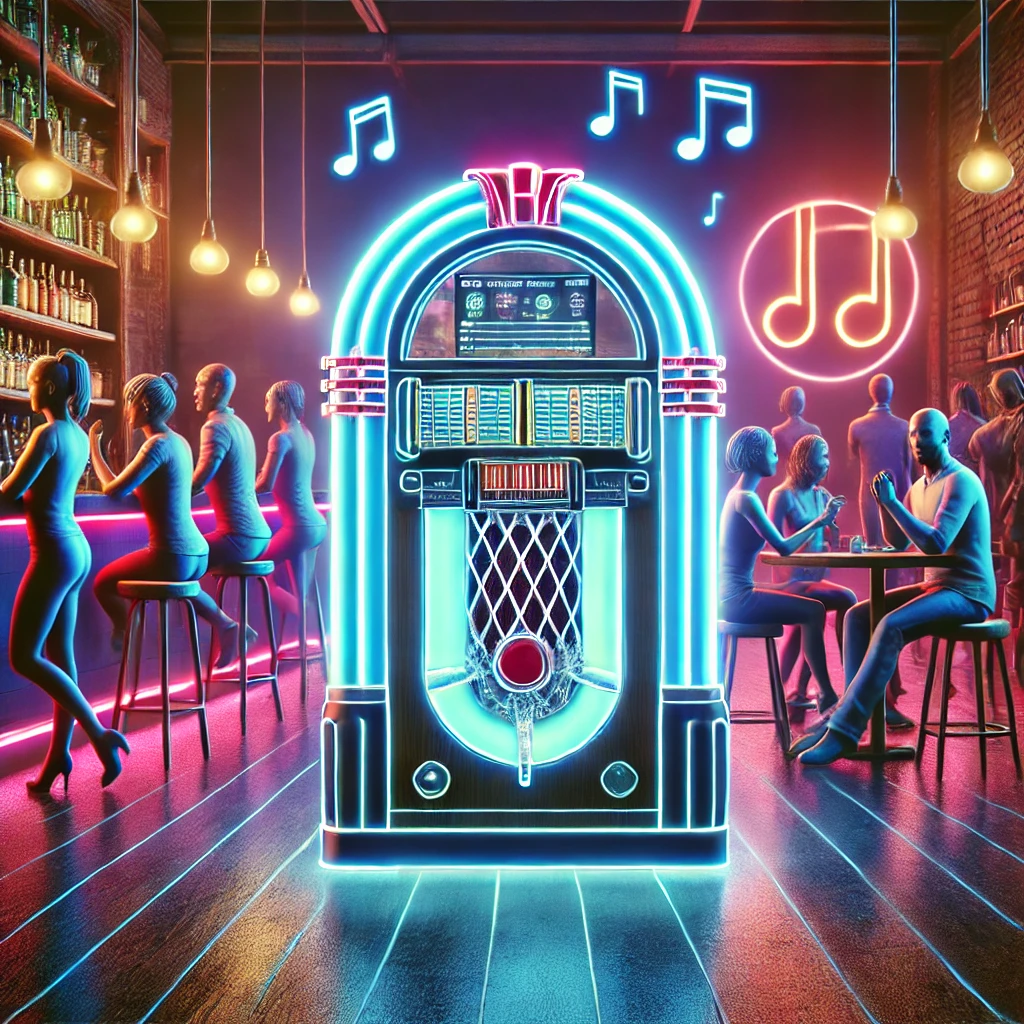On this day in 1889, the first commercial jukebox made its debut at the Palais Royale Saloon in San Francisco. Dubbed the “nickel-in-the-slot phonograph,” this innovative device introduced a novel way to experience music. Patrons could select a tune by inserting a coin, marking the beginning of pay-per-play entertainment. Invented by Louis Glass and William S. Arnold, the jukebox combined Thomas Edison’s phonograph technology with a coin-operated mechanism, allowing multiple users to access recorded music. It was an instant hit, generating over $1,000 in revenue within its first six months—a remarkable sum for the time.

Why the Jukebox Mattered
The jukebox was more than a technological curiosity; it reflected broader cultural and economic trends of the late 19th century. Industrialization was transforming society, and leisure activities were evolving to accommodate urban lifestyles. The jukebox brought music to the masses in an era when live performances or expensive phonographs were the only options. It democratized access to recorded sound, making it affordable and widely available. Saloon-goers could select from a repertoire of popular songs, creating a communal listening experience that connected people across social classes.
This innovation also paved the way for the burgeoning entertainment industry. As jukebox technology improved, its presence spread to diners, dance halls, and eventually, suburban soda shops, becoming a staple of American culture. The jukebox wasn’t just a machine—it became a symbol of fun and freedom in the roaring 1920s and beyond.

The Lasting Legacy of the Jukebox
The invention of the jukebox had ripple effects that can still be felt today. It revolutionized the way music was consumed, laying the groundwork for the concept of personalized music playlists. Decades later, jukeboxes inspired innovations like radio requests, music streaming services, and digital playlists. The notion of selecting specific songs to suit personal tastes, now as easy as tapping a screen, owes much to the early jukebox’s coin-operated charm.
Moreover, the jukebox played a significant role in shaping the music industry. It became a vital promotional tool for artists, influencing record sales and song popularity. During the mid-20th century, a song’s inclusion in a jukebox’s lineup often determined its success, making it a powerful arbiter of musical trends.
A Timeless Innovation

The debut of the first jukebox on November 23, 1889, marked the beginning of a new chapter in entertainment history. By democratizing access to music, the jukebox transformed saloons and social spaces into hubs of communal enjoyment and cultural exchange. Its influence extended far beyond the turn of the century, shaping music consumption patterns and technological innovations that define the modern era.
Today, while jukeboxes may seem like relics of the past, their spirit lives on in every playlist we create and every streaming service we use. The coin-operated phonograph may have started as a saloon novelty, but it left a legacy as a timeless cultural icon.
